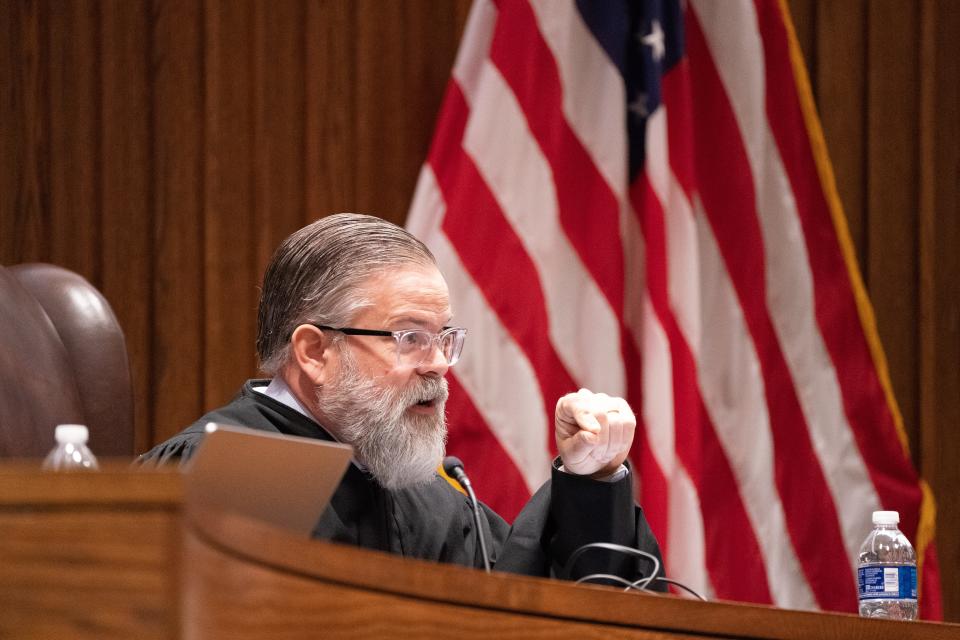Kansas Supreme Court rules against Kris Kobach and Scott Schwab in election law case
- Oops!Something went wrong.Please try again later.
- Oops!Something went wrong.Please try again later.
- Oops!Something went wrong.Please try again later.
The Kansas Supreme Court has sided with voter advocacy groups in a lawsuit against Secretary of State Scott Schwab and Attorney General Kris Kobach challenging the legality of an election law enacted by the Republican-controlled Legislature over the veto of Democratic Gov. Laura Kelly.
Justice Caleb Stegall, the high court's most conservative member, wrote the unanimous opinion released Friday.
"Today we hold that when the Legislature criminalizes speech and does not — within the elements of the crime — provide a high degree of specificity and clarity demonstrating that the only speech being criminalized is constitutionally unprotected speech, the law is sufficiently unclear to confer pre-enforcement standing on a plaintiff challenging the law," Stegall wrote.

The matter was one of two argued before the Supreme Court this year stemming from the same case brought by the League of Women Voters of Kansas, Loud Light, Kansas Appleseed Center for Law and Justice and the Topeka Independent Living Resource Center.
Friday's ruling addressed the dispute over a provision of House Bill 2183 that makes it a felony crime to impersonate an election official.
The voter advocacy groups sued in Shawnee County District Court, arguing in part that they feared the law criminalized voter registration drives. But Judge Teresa Watson denied their request for a temporary injunction, and a divided panel of the Kansas Court of Appeals upheld Watson's ruling.
The Supreme Court ruled that the appellate court was wrong when it dismissed the claims for lack of standing. It vacated that ruling and remanded the case for further proceedings.
The justices said people operating voter registration drives who aren't election officials face a credible threat of prosecution if a prospective voter were to wrongly believe they were in fact election officials.
"The statute simply does not provide clarity that truthful speech which generates an innocent or unreasonable listener mistake is outside of its scope," the court said.
Just because Friday's ruling sided with the voter advocacy groups does not necessarily mean that the justices will again in the future should the matter return to the Supreme Court.
"We caution, however, that our holding today does not pronounce any definitive interpretation or construction of K.S.A. 25-2438(a)," Stegall wrote. "We limit today's opinion to the broader question of standing."
More: Did Kansas criminalize voter registration drives? Supreme Court weighs election law case
Jason Alatidd is a statehouse reporter for the Topeka Capital-Journal. He can be reached by email at jalatidd@gannett.com. Follow him on X @Jason_Alatidd.
This article originally appeared on Topeka Capital-Journal: Kansas Supreme Court sides with voter advocates in election law case

